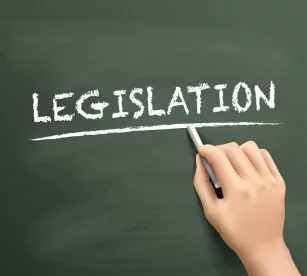On December 31st, the Department of Homeland Security issued a proposed rule addressing and extending employment flexibility for certain classes of nonimmigrants and prospective immigrants. The new rule proposes to amend current regulations to “clarify and improve longstanding agency policies” related to provisions in both the American Competitiveness in the Twenty-first Century Act of 2000 (“AC21”) and the American Competitiveness and Workforce Improvement Act of 1998 (“ACWIA”). When implemented, the rule has the potential to provide a clear adjudication system for USCIS and benefits for foreign nationals who would like more flexibility in the U.S. job market. While actual implementation is historically varied, we are cautiously optimistic that this rule will provide more standardized guidance for petition and application adjudication at the service centers. This post will examine the benefits for individuals who are already in the permanent residency process.
The proposed rule seeks to consolidate existing guidance and provide greater flexibility under both laws for employees who have been sponsored for green cards whose I-140s have been approved for 180 days or more. Specifically the rule proposes to assist in this flexibility by:
Extending H-1B Nonimmigrant Status for Certain Individuals Who Are Being Sponsored for Lawful Permanent Residence
“Consistent with current practice,” DHS proposes to continue granting 3-year extensions of H-1B status to individuals who are prevented from obtaining a green card (either via adjustment of status or consular processing) due to no immigrant visas being available in their EB-1, EB-2, or EB-3 category for their country of birth.
H-1B Extensions for Individuals Affected by the Per-Country Limitations
The biggest proposed change to eligibility for H-1B extensions based on 104(c) of AC21 is that when an immigrant visa petition has been approved for 180 days or more, the agency will no longer automatically revoke immigrant visa petitions based on “withdrawal of the petitioner or termination of the petitioner’s business.” This should allow potential immigrants to continue to extend their H-1B status without concern for the underlying immigrant visa petition from a previous employer.
H-1B Extensions for Individuals Affected by Lengthy Adjudication Delays
Also “consistent with existing policy”, DHS proposes to make H-1B extensions “under section 106(b) available to workers who remain eligible for additional periods of H-1B status, whether or not such individuals are in H-1B status or in the United States at the time the H-1B petition is filed.” DHS is interpreting this section to mean that even if an individual has left the United States and is otherwise eligible for H-1B status, an H-1B petition can be filed on his or her behalf. This extension is also regardless of whether previous AC21 based extensions were from the same employer or a new employer, allowing the prospective immigrant more flexibility.
One significant change is a new requirement that a foreign national apply for an immigrant visa, either by consular processing or via adjustment of status, within one year of a visa number becoming available.
Comments on this proposed rule are due to the Department of Homeland Security on or before February 29, 2016.



 />i
/>i

